Chapter One
Briseis knew not to listen to Cassandra. Everyone knew Cassandra was mad. She only said what she did because she was too delusional to keep quiet. That, or she simply wanted to start trouble.
When their family made its obligatory visits to see Cassandra at the temple of Apollo, Briseis and her brother, Aeneas, sometimes asked her to tell their fortunes, hoping to later laugh about whatever ridiculous things came out of their lunatic cousin's mouth.
"You'll be shut up behind these walls," Cassandra had told Briseis during their last visit. "Till the lions come to take you away."
Mad Cassandra might be, but she had a knack for telling people what they least wanted to hear. Since the war began nearly seven years ago, Briseis hadn't left the confines of Troy's walls and had almost despaired of ever seeing anything of the world.
But, as always, Cassandra had been wrong. Here Briseis stood, on the wind-swept plains of Ilium, outside of the city walls, with sun-warmed grass between her toes and cedar-scented air in her lungs and nostrils. The nearest lions stalked the foothills of far-off Mount Ida, which loomed off in the distance to the south of where Briseis stood. Even if those beasts made it close to the Trojan encampment, they would quickly be hunted down. Their pelts would adorn the walls of her cousin Hector's personal apartments.
"Briseis..." Helen stepped out of one of the tents that made up the royal pavilion. "... Briseis, where are you?"
Briseis waved to her friend.
Helen came and took Briseis's hand, then led her back to the tent. "They've unpacked our clothes. Come, let's prepare ourselves for the duel."
Briseis' best gown, a gift from her aunt, Queen Hecuba, had been laid out on one of the beds inside the tent. The costly blue velvet, heavy with gold and silver embroidery, was much too ostentatious for Briseis to have a reason to wear it until now. Occasions for such finery had been few and far between, even at the royal court.
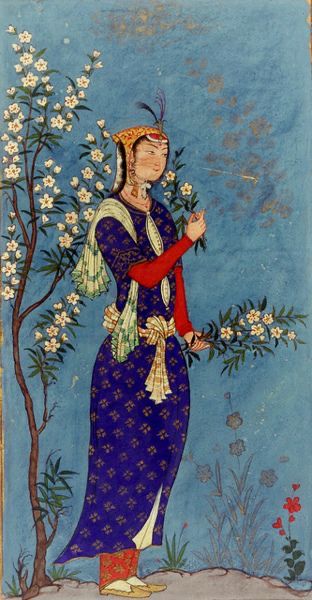
A maid helped Briseis out of the simpler gown she was wearing. "Who do you think will win the duel?" This question had all of Troy holding its breath. Considering Helen's first husband, King Menelaus of Sparta was fighting her second husband, Briseis' cousin, Paris, to see who would return home with Helen as his prize, the outcome concerned her most of all.
Please say you hope Paris wins; please tell me you want to stay.
Helen put down the mirror she was holding as another maid combed her hair and looked up at Briseis. "Did you say something, Briseis?" she said.
Poor Helen couldn't be blamed for getting distracted by her own enchanting reflection.
Briseis repeated her question.
"Oh..." Some people were open books. You could read their every thought or emotion on their faces. Unfortunately, Helen's face wasn't one of these. Whoever gazed upon her beauty was left wondering what was going on in that exquisite head. "I hope Menelaus wins. It's grown so tedious here and I want to go home."
Go Home? Troy is your home now, not Sparta.
Life in a besieged city, where everyone either snubbed or cursed you, wasn't the one full of passion and excitement that Paris had promised Helen when they ran off together. But, still, Briseis, a daughter without a mother, and Helen, a mother without a daughter, had each other. Now that great Spartan bore, Menelaus was going to ruin everything. He would defeat Paris and bring Helen back with him, home to Hermione, her actual child, the most perfect girl in the world.
"Raise your arms, My Lady," the maid attending to Briseis said.
With a sigh, Briseis obeyed. The maid helped Briseis into her gown. Briseis picked up the large, misshapen pearl she wore on a ribbon around her neck and moved it out of the way so that that maid could lace her bodice. Her fingers stroked the familiar lumps and bumps.
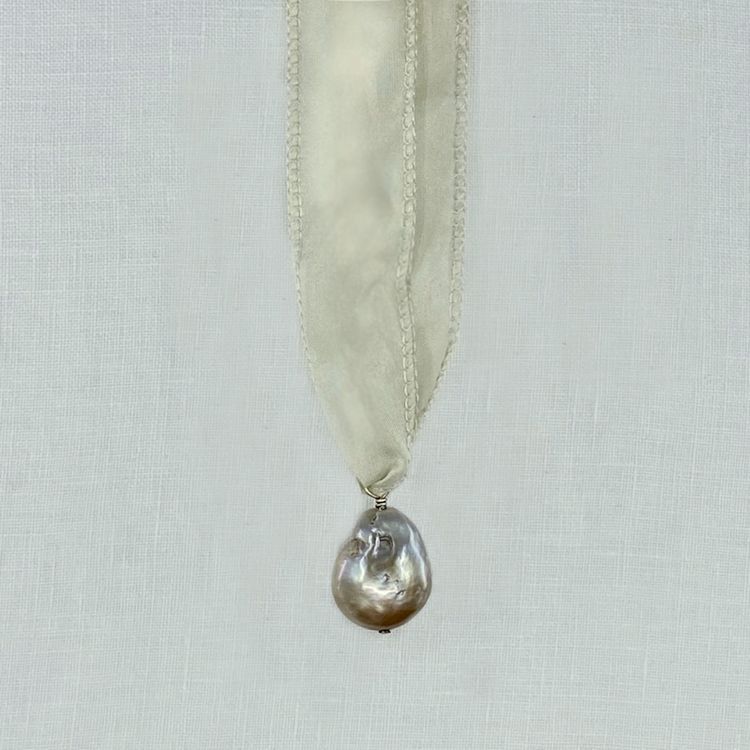
"What do you have there?" Safie, Briseis' father's old housekeeper, had asked when a seven-year-old Briseis returned home from playing on the beach with the pearl clutched in her grubby palm.
"I found an oyster shell on the beach." Briseis opened her palm to show Safie her treasure. "This was inside."
"Pearls are a symbol of Venus, child. The Goddess, your lady mother, has sent you a sign."
"A sign of what?"
Briseis slouched and crossed her arms as her maid straightened the skirt of her gown.
"Don't just stand there moping, sweetling," Helen said. "Let's do something with that hair." She took the comb from her maid and gestured for Briseis to come to her side.
Countless times Briseis had sat at Helen's knee and let Helen comb and braid her hair. Helen had such a gentle touch and worked through the worst tangles as if they were butter. For a little girl who'd known nothing else besides hair-pulling and head-whacking from her nursemaid, this was the closest thing Briseis had ever felt to a mother's love.
Briseis turned away from Helen. Go plait Hermione's golden tresses if you miss Sparta so much. "I'm old enough to do it myself."
She was fifteen. Old enough to be married.
Helen beckoned to Briseis again. "But this might be the last time I'll ever get to comb your hair." She unleashed one of her pouts, the most lethal of all the weapons given to her by her father, Jove. Briseis was powerless.
As Helen worked attar of roses through Briseis' hair and combed out the tangles, Briseis closed her eyes and prayed: Sweet Venus, laughter-loving Goddess, and divine mother, please hear the prayer of your poor child. I know that Paris is a pet of yours. Please help him win the duel against Menelaus and end the war. Let him keep the prize you gave him. Let me keep the only link I have to you.
Being the most beautiful and desired woman in the world, Helen was Venus' earthly conduit. The closest thing most mortals, even Venus' own daughter, would ever get to the Goddess herself. And soon, Briseis might lose that link.
This prayer was the only thing keeping Briseis from stamping her feet or throwing her arms around like a disgruntled child because she could do nothing else.
The news that Menelaus was going to fight Paris for the return of Helen arrived in Troy like the first clap of thunder before a storm. It might foretell a disaster, but at least something was happening.
This storm had been brewing for the past seven years. Every day came with the news of another Greek advance towards Troy or the fall of another Trojan ally. But neither side was any closer to victory than they had been at the beginning of the war. No matter how many times the Trojans repelled the Greeks, the Greeks kept coming back. The restless Greeks took out their frustrations that they hadn't yet breached the walls of Troy by pillaging the surrounding villages, towns, and cities. Fortunately, Lyrnessus, a Trojan outpost to the south, near the Lydian border, where Briseis' father commanded the garrison, hadn't yet fallen to the Greeks.
Briseis left offerings of myrtle bows and honey cakes on Venus' altar every night for her father's swift and victorious return. But Venus, in all her divine wisdom and beneficence, hadn't yet seen fit to answer her prayers.
The duel between Paris and Menelaus was a simple and obvious solution. So much so that some grumbled: why hasn't it been tried anyway.
"When a cuckold and a lecher fight over a whore...." Aeneas, Briseis' brother, had said when he heard about the duel. "...they usually settle it amongst themselves."
Briseis had gasped. "Don't speak of our cousins that way."
"They're no cousins of ours."
Determined not to miss the most exciting and important event to happen in years, the pashas and viziers of Troy, with their households and entourages, joined the royal family on the Plains of Ilium to watch the duel between Paris and Menelaus. They held court in the shade of vast and colorful tents where they sipped iced sherbet and were cooled off by giant ostrich and peacock feather fans.
Peddlers and merchants followed after these wealthy potential customers. They carried their carts and packs from tent to tent, selling kebabs and fry bread, silk scarves, and metal bangles.

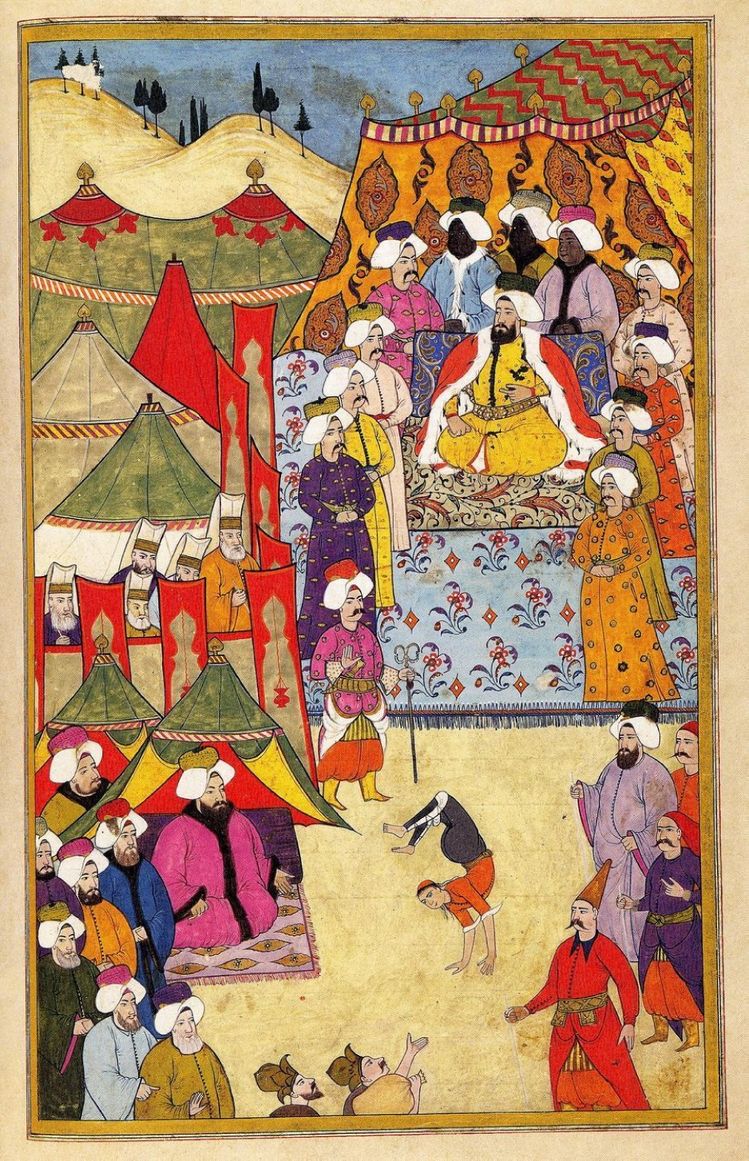
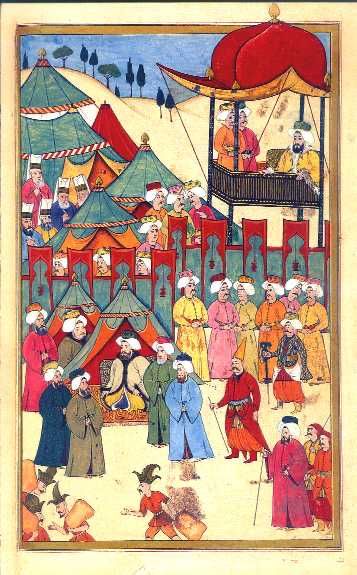
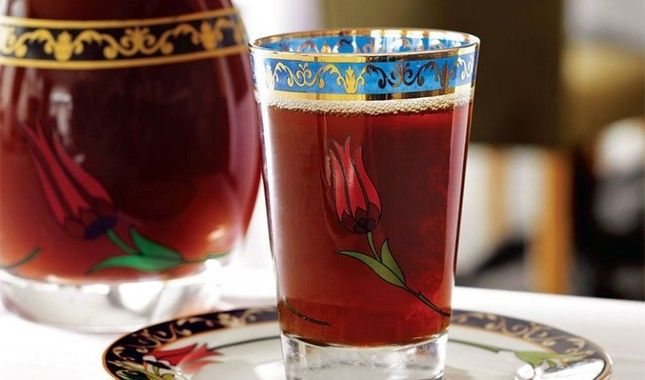

So many things tempted Briseis' eyes and nose that she couldn't decide what to spend her money on. Finally, after much dithering, she settled on a golden bracelet, carved with Trojan suns, to give to her aunt, Queen Hecuba, to say thank you for inviting her to watch the duel from the royal box.
Briseis went with Helen to call upon Queen Hecuba at her tent. The Queen's ladies lounged upon low sofas piled with silk cushions. Their jewelry jiggled and jangled as they reached for glasses of sherbet, adjusted their veils, or leaned over to whisper something, drowning out the musicians playing behind lattice screens. Trojan women were famous for their love of jewelry, especially bracelets. It was said that a Trojan mother could recognize her daughter by the sounds her bangles made when she moved.
But somehow, the words "the swan's daughter," and "the little Phrygian," could be heard over the music and jingling jewelry when Helen and Briseis walked in.
Helen blushed and said what she usually did when the old rumor that her mother, Queen Leda of Sparta, had been impregnated by the god, Jove, in the form of a swan resurfaced, "my sainted mother would never have coupled with a swan."
Briseis did her best to hold her head high. She had no reason to be ashamed of her parentage. Her father was Prince Anchises, brother to King Priam of Troy, and her mother was Venus herself. The name "the little Phrygian" came from the fact that Briseis and her brother, Aeneas, were born while Anchises acted as the Trojan ambassador to Phrygia. When Anchises returned from his posting with two infants, a newborn girl and an almost-two-year-old boy, and wouldn't name the mother (all he would say was that she'd been a Phrygian princess), rumors spread. Anchises, the most handsome of old Laomedon's sons, had been the consort of Venus.
Briseis wore the pearl around her neck as a sign that Venus had claimed her.
Queen Hecuba was sitting with her two eldest sons, Hector and Paris, trying to keep them from strangling each other.
Paris tossed his shoulder-length curls and adopted an air of haughty indignation. "When I brought Helen back to Troy with me," he said. "She dazzled all who beheld her. Everyone said I'd done well to have claimed such a prize. Now, they wring their hands, saying they don't see why all this fuss is being made over her."
"Don't you know, you girly-haired, beardless whoreson...." Hector said. While most Trojan men wore their hair short and sported beards, Paris had allowed his hair to grow long and was clean-shaven.
Queen Hecuba furrowed her brow. "Hector, is such language necessary?"
"...That there's no point in trying to keep something that's not yours, no matter how valuable it is. Helen is only precious because foolish men have deemed her so and they've greatly overestimated her worth. She isn't worth all the trouble she's caused us."
The ladies within earshot of this conversation shot glances in Helen's direction. Helen blushed and lowered her eyes. "Why does everyone always blame me?"
Most of the women there that day had lost someone during the war. A father, a brother, a husband, or a son. Helen was the most apparent object to direct their anger, grief, and frustration at. It was easier than accepting that their loved ones had willingly left them, knowing that they might never come back.
When a woman's husband strays from her, she always blames his mistress.
Paris scoffed. "Not worth all the trouble?" He said. "I can't think of a more noble cause to fight for than a lady as virtuous and beautiful as Helen."
"The only cause you fight for, Paris," Hector grumbled. "Is your own selfish lust."
Queen Hecuba glowered at her two sons. "Boys, boys. That's enough."
Hector and Paris stared at their feet, suitably chastened.
Briseis hoped that her veils muffled her giggling. It was silly that two grown men needed to be scolded by their mother like two naughty boys. Finally, she composed herself and approached her aunt and cousins.
As graceful as a dancer, Paris bowed to Briseis. "Sweet cousin." He kissed Briseis' hand. "Your beauty will remind all the young knights of Troy what they're fighting for. I wouldn't be surprised if tomorrow, my father is flooded with requests for your hand."
Briseis blushed. All the knights who served Hector were young, handsome, high-born, and distinguished for their bravery and chivalry. Marriage to one of them was far from displeasing to her.
If his sister, Cassandra, had a talent for telling people what they least wanted to hear, Paris' gifts lay in flattery. Little wonder he'd convinced Helen to forsake her kingdom, her husband, and her child.
Briseis curtsied to Paris. "Save such sweet-talk for your good lady," she said.
Paris went over and kissed Helen's forehead, then put a possessive arm around her. Helen gave him an indifferent smile. But, unfortunately, this touching scene was interrupted by trumpets signaling that the duel was about to begin.
"Come, my sweet Nell," Paris said. He led Helen away.
Briseis clutched the pearl around her neck. Venus willing, the war would end today with Helen returning on Paris' arm. All she, Briseis, could do was hope and pray for this outcome.

A vast flock of pigeons had settled on the tiltyard. Little page boys were recruited to shoo them away, but the pigeons kept fluttering back no matter how hard the page boys tried. Some of the winged wretches even perched on the steps and railings of the royal box.

Briseis had to lift the hem of her gown to keep it from dragging in their droppings when she climbed the steps.
The herald blew his trumpet. "Queen Helen," he announced.
Coming before Briseis in the order of precedence, Helen entered the royal box first.
"Spartan whore!" Voices from the crowd shouted. "When Menelaus gets the bitch back, he should toss her to the rest of the Greeks. Let all of us have a turn with her."
To her credit, Helen didn't falter. Instead, she went forward with her head held high, as a queen should.
The jeering crowd quieted down to awestruck silence. Helen was stunning at most times but arrayed in her full regal splendor, she was positively breathtaking. In her seafoam green gown, embroidered with pearls, she looked like the newborn Venus, rising from the ocean. She wore her veils in the Greek fashion, in contrast to her Trojan-style gown. One veil was pinned far back enough on her head to show off how her honey-colored braids coiled around her ears like a ram's horns. The other looped around her chin, putting her exquisite face on full display. Her splendid crown and necklace had been part of the treasure Paris and Helen took with them when they fled from Sparta.
If Menelaus didn't want his lovely wife back, he would at least want the gold and jewels she and her lover stole from him.
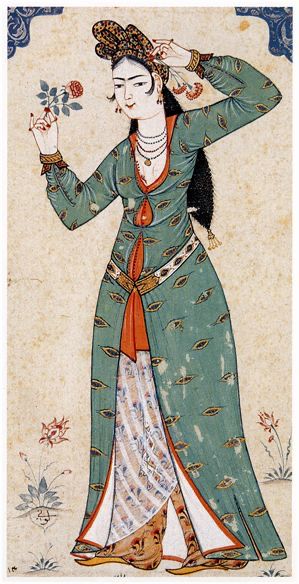
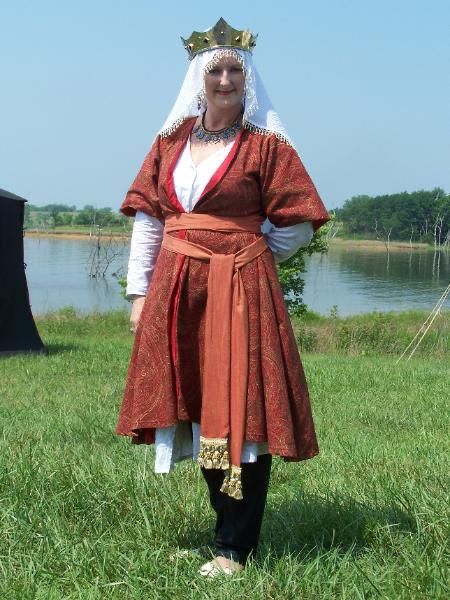

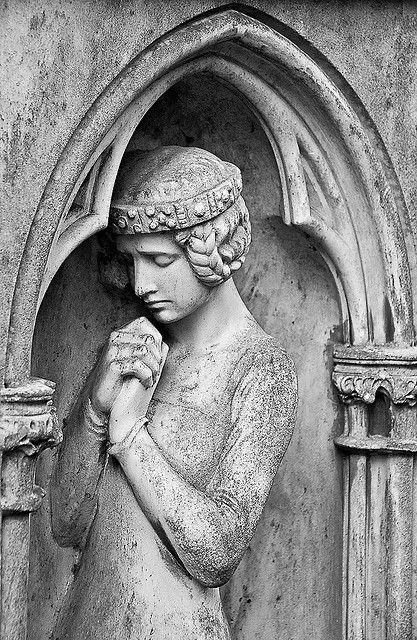
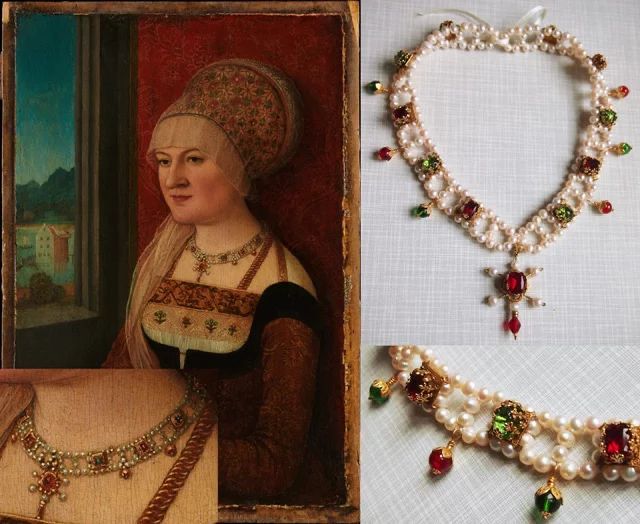
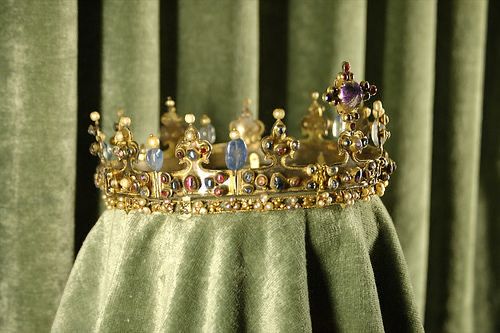
"I thank Venus that I've lived to see such beauty," said Lord Pandarus, one of King Priam's elderly cronies. "The suffering we've all endured is worth it when it's for such a woman."
It was funny that Lord Pandarus would say this. Hadn't his own niece been captured by the Greeks?
The herald blew his trumpet again. "Princess Briseis."
Briseis straightened her posture and entered the royal box.
You would expect to feel self-conscious and inferior when following after Helen, but Helen's beauty elevated everything around her. If Helen stubbed her toe on a paving stone, that paving stone would, for a single moment, be as precious as a jewel. Briseis flattered herself that she was already more impressive to look at than a paving stone, and Helen's reflected glory gave her some of the confidence to carry herself like a regal princess instead of a sheltered girl making her first public appearance.
Her entrance elicited whispers of "oh, isn't that Prince Anchises' little girl?", "yes, isn't she all grown up," and "isn't she a beauty."
Briseis couldn't help but smile. They're looking at me; they're talking about me!
Helen was also flushed and glowing with the joy of being looked at and admired. She approached the front of the royal box where Queen Hecuba was sitting with her daughter-in-law, Hector's wife, Andromache. The two women looked up at Helen with barely disguised annoyance.
"Good day ladies," Helen said. "May I join you?" She pointed to an empty third chair next to them.
Andromache and Queen Hecuba shared a look.
"My apologies, Queen Helen," Queen Hecuba said. "But we've already asked Princess Briseis to sit with us."
Briseis had received no such invitation but didn't dare contradict her formidable aunt. So she took the empty chair. This wasn't a show of favor to herself but rather a snub to Helen.
Briseis turned away from Helen, who looked like a puppy that had just been kicked.
What else had Helen expected when she asked to sit with Andromache and Queen Hecuba? After all these years it hadn't yet registered to Helen that the two women loathed her? Andromache blamed Helen for causing the war that led to the destruction of her kingdom, Cilicia, and the deaths of her entire family. And yet, Helen still tried to be friendly with them, despite all the times they'd rebuffed her.
King Priam gestured to a servant to bring another chair next to his. "Come sit with me, child, and point out who's who among the Greeks."
Helen was related to most of the Greek leaders by blood, marriage, or some combination of the two. She had known many of them since childhood. Of anyone there that day, she was the most qualified for Priam's purpose.
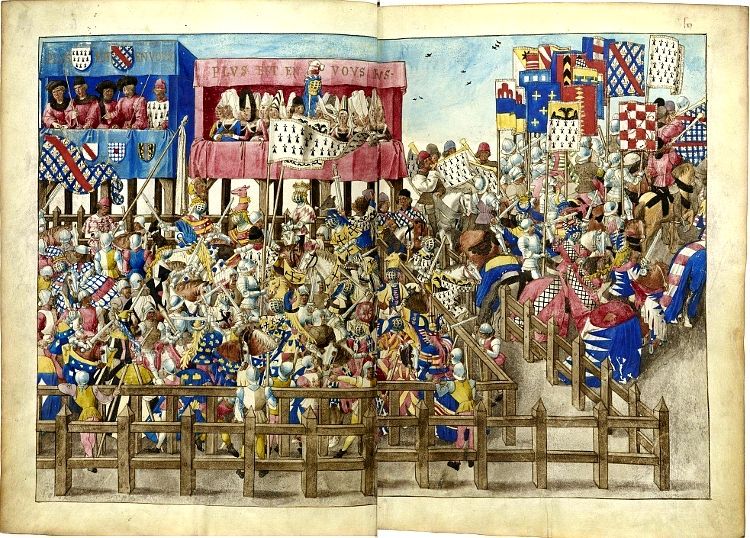
"Those purple banners," Helen said. "The ones with the ships in full sail. They belong to King Ulysses."
"The Fox of Ithaca himself?" King Priam craned his neck to spot the banners Helen was talking about.
"He's married to my cousin, Penelope. Poor dear, she deserved better than to marry the king of nothing more than a pile of rocks in the middle of nowhere."
Briseis searched among the knights gathered around the Trojan side of the tiltyard for Aeneas. Her brother was participating in the elaborate ritual of dressing Paris in his jousting armor. She waved to him.
Aeneas hung his head. He was a grown man of seventeen, a squire to Hector and Paris, and being waved at by his little sister was an affront to his dignity.
On the Greek side of the tiltyard, squires in red and orange livery helped who must be King Menelaus into his armor. Banners, the same colors as the livery, fluttered around them.
"Which banners belong to Sparta and which belong to Mycenae?" King Priam asked. "I cannot tell the difference."
The banners of the two kingdoms were almost indistinguishable. The same colors, red and orange, and the same lions and griffins.
Helen pointed to the flags hanging from the royal box on the Greek side. "The red lions and orange griffins belong to Agamemnon of Mycenae , my brother-in-law." King Agamemnon, brother of Menelaus, and the husband of Helen's sister, Clytemnestra, was a dark, imposing figure who sat watching the activity going on below him like Jove, deciding who to smite with a lightning bolt.
A livery-clad squire placed a gleaming helmet on Menelaus' head.
"The orange lions and red griffins belong to Menelaus of Sparta, my first husband." Helen lowered her eyes.
Briseis crossed her arms. The first husband who's fighting to get you back from your second one. Who's fighting to take you back to Sparta and away from me.
"All of Greece is here," said one of Queen Hecuba's ladies in waiting who was sitting behind Briseis. "Except for the only Greek anyone cares about."
"You mean Achilles, of course," said the woman next to her.
Briseis turned her head a little to listen in on their conversation.
All of Troy had a strange fascination with that young brute, Achilles, in the same way, they'd be curious about a ferocious beast they'd heard stories about but never seen in person. The Thessalonian prince had been dipped in the River Styx as an infant by his sea-nymph mother to make his body invincible. Chiron, the same centaur who'd trained Perseus, Jason, Theseus, and Hercules, had tutored him in the arts of war. Achilles' Myrmidons had never been defeated in battle because the Goddess Bellona herself fought on their side.
The legend of Achilles, Prince of Thessaly, grew every time Briseis heard it.
A trumpet signaled for the duel to begin.
Paris stepped forward from the Trojan side as arrogant as a magnificent horned stag. Menelaus came out of the Greek ranks like a ferocious lion, eager to sink its teeth and claws into its prey.
Briseis expected the two men to mount their horses and start charging at each other right away. But, they just stood there while Hector and another Greek knight talked.
Briseis tapped Andromache on the shoulder. "What's going on?" she said.
"They're discussing terms," Andromache replied. She turned away from Briseis to focus on what was happening down in the tiltyard.
"Everyone knows the terms." Briseis slumped back in her chair. "If Paris wins, then Helen stays and the Greeks go home empty handed, and if Menelaus wins, then Helen goes back with them. Why do they need to discuss anything?"
Andromache shrugged. "It's just how things are done."
Of course, Paris looked splendid atop his white charger with the blue and gold banners of Troy flapping behind him. His charger tossed its head and kicked up the sand under its hooves. Menelaus was no less impressive on a rearing black steed. Both the horse and its rider couldn't wait to charge forward at full gallop.
Aeneas, as puffed-up as a peacock, brought Paris his lance.
"Let's see if you can use it," said Menelaus.
Paris laughed. "I can wield a lance better than you, Greek," he said. "Just ask Helen."
Helen blushed and turned her face away, for once, displeased that all eyes were upon her.
"Then prove it." Menelaus lowered his visor, readied his lance, and spurred his horse.
Some divine power must have been looking out for Paris. The first round of the joust gave Paris' lance an easy shot to Menelaus' helmet. The lance shattered, and Menelaus fell back in his saddle.
Briseis again tapped Andromache on the shoulder. "Is it over?" she said.
"No," Andromache replied. "He's still on the horse."
Menelaus recovered from the blow as quickly as if it had just been a bump on the head. He sat back up in his saddle and spurred his horse for another round.
Fortune continued to smile upon Paris when the second round gave him another good shot. He shattered his lance on Menelaus' breastplate.
Menelaus didn't take this blow as well as he did the previous one. The force from Paris' shattering lance sent him flying off his horse. He landed face-first in the sand.
Paris preened atop his mount, seeming to expect to be cheered like a conquering hero by the Trojans. But both sides, Greeks and Trojans, were silent. Did this mean the war was over? Was this really it?
Briseis grasped the railing with such intensity that her fingers went numb.
"Help me up, damn you!" Two Greek squires ran over to lift Menelaus, and his fifty pounds of armor, onto his feet.
Paris dismounted his horse and crossed over to the Greek side of the tiltyard. He gave Menelaus his hand to shake. But, instead of shaking Paris' hand, Menelaus drew his sword.
The whole crowd let out a collective gasp.
Paris had no choice but to draw his sword. Menelaus lumbered towards him.
"You cox-comb." Menelaus swung his sword at Paris. Paris minced about like a dancer and blocked Menelaus' blows with his own sword. "You pimp and brigand."
The scraping of steel blades on steel armor made Briseis' teeth clench.
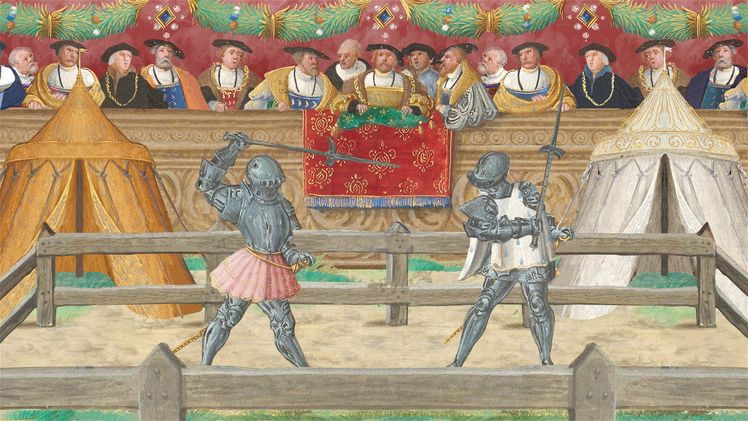
Menelaus lunged at Paris. Unfortunately for Paris, he wasn't able to keep Menelaus from overpowering him this time. Paris caught Menelaus' neck with his sword and pulled Menelaus down with him as he fell. Both men dropped their weapons during this tumble, leaving them to fight with their bare hands.
Grabbing the back of Paris' helmet, Menelaus pounded Paris' face into the sand until Paris spat out blood. "Let's see if Helen will want you back," Menelaus sneered. "With a broken nose and missing teeth." He pulled off Paris' helmet by its plumes and reached for Paris' neck.
"Paris!" Helen rose from her seat, like one of the pigeons fluttering away from the struggle occurring on the tiltyard.
Briseis went and threw her arms around the shrieking and sobbing queen. Helen's reaction was somewhat unexpected. Hadn't Helen said this morning that she wanted to leave Paris and return to Menelaus?
Paris wiggled out of Menelaus' grasp and crawled toward the safety of the Trojan lines. Menelaus came after him. Hector covered half his face with his palm, then extended a hand to help his brother.
"Give up the lecher!" The Greeks shouted. "And give up the whore!"
Briseis shrunk into her veils. If only they could make her disappear completely. What a curse it was to share blood with such a disgraceful coward as Paris.
Helen grabbed the railing as if she wanted to throw herself out of the royal box. "Paris! I want to go to Paris!"
"Why?" Briseis asked. Whatever drew Helen back to Paris was incomprehensible to her.
"You don't go up against Venus and hope to win." Helen put a hand on Briseis' shoulder. "Someday, you'll understand."
Briseis rolled her eyes. Maybe she would understand someday, or maybe people just used Venus to excuse their follies and vices.
King Agamemnon banged his fists on the railing on the Greek royal box. "Menelaus is the rightful winner of the duel," he said. "I demand that Helen be returned and the Trojans concede defeat."
The Trojans argued amongst themselves over how they should respond to this demand:
"Just send the queen back."
"Why should we all continue to fight and die just so that lazy coward Paris can keep his bedmate?"
"But it wouldn't be honorable to just abandon Helen after everything that's happened."
"Even if the Greeks get her back, they'll still continue to plague us. So it doesn't matter."
Paris stepped forward again from the Trojan lines. "Never!" He shouted.
"What in Apollo's name are you doing?" Hector smacked his brother.
"Helen is more than just a woman." Paris rubbed the spot where Hector had hit him. "She's become a symbol, an ideal. If we give her up, then Troy has lost. We let the Greeks get away with questioning our honor and with looting and pillaging our friends and allies. Who's to say they won't keep at it even if Helen is returned to Menelaus."
Hector sighed, "I should have let Menelaus strangle you to death."
Briseis rubbed her throbbing temples. Paris was a fool but not more of a fool than she was. They both wanted to keep Helen, and the same mixture of idealism and entitlement made them think they'd get what they wanted simply because they wanted it. But Paris could make things happen while Briseis was just a silly girl who'd made a stupid prayer that changed nothing.
Bạn đang đọc truyện trên: Truyen247.Pro